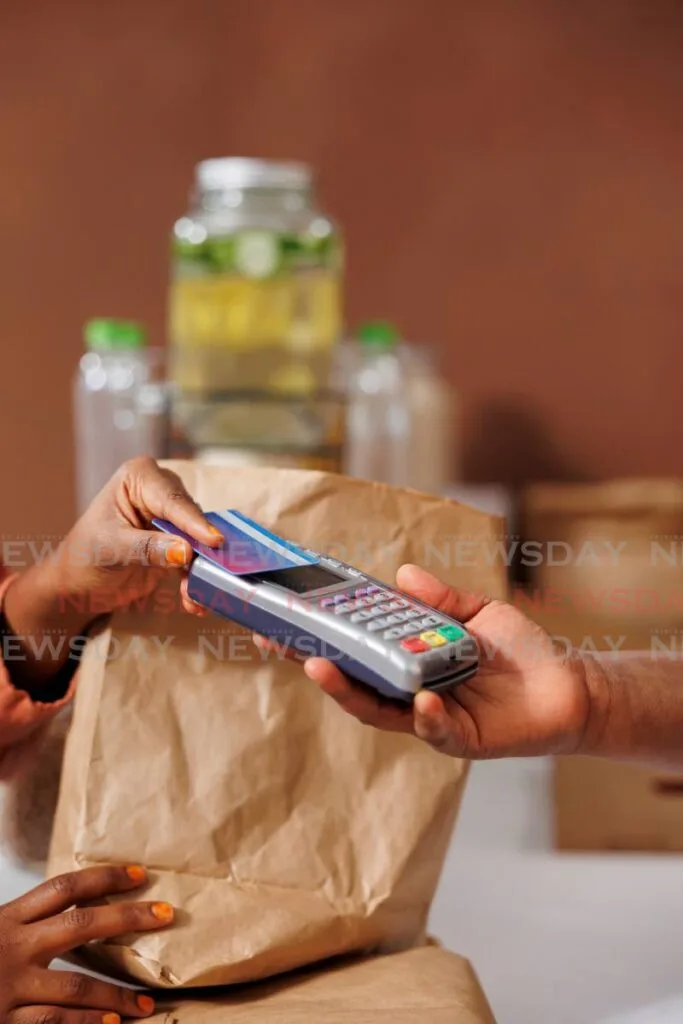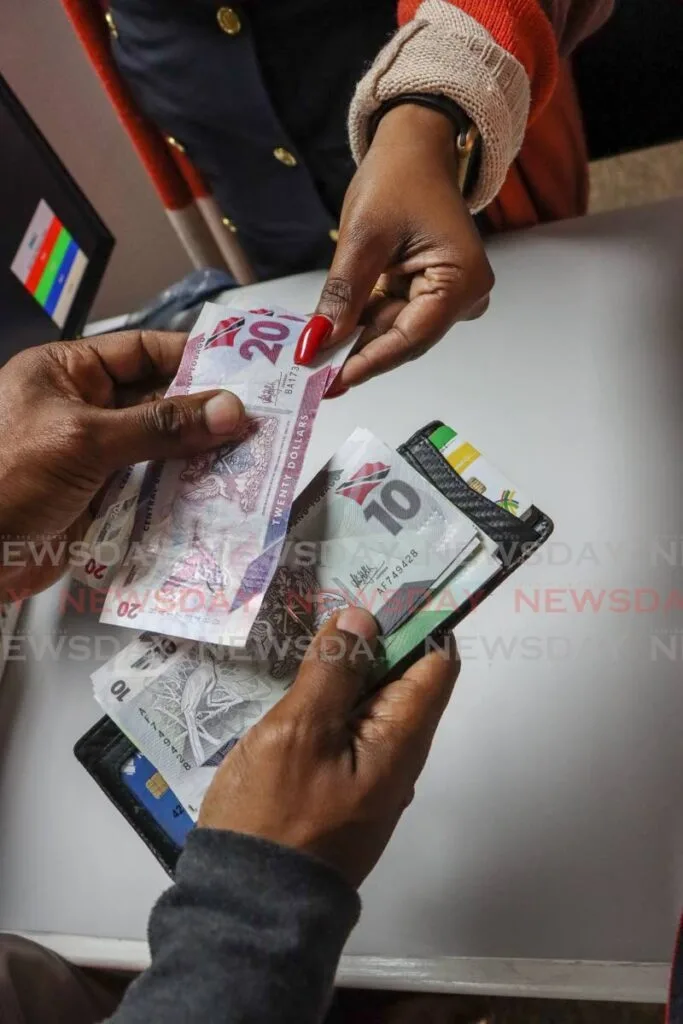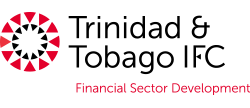October 10, 2024 | Category: In the News/Media Releases
Cashless society — Trinidad and Tobago finance centre maps ways to digital payments

Before 2016, India was a widely cash-based economy.
Even two years after the demonetisation process in 2016 which catalysed India’s drive toward becoming a cashless society, the World Bank said 190 million adult Indians still did not have a bank account.
Now, some eight years after the country started its cashless journey, it is considered one of the top-ten fastest-growing economies in the world. Its transition to cashless payments is driving the growth in purchasing power of the middle class and the informal economy, which used to be largely dependent on cash.
Now, all businesses, from sari shops to tuk tuk (a three-wheeled vehicle used as taxis) drivers to farmers buy goods and sell their wares through cashless transactions – chiefly the Unified Payments Interface (UPI), which allows users to transfer funds instantly using a QR code. India now makes ten-12 billion cashless payments a month, according to India’s external affairs minister S Jaishankar in an Economic Times report in January.
In TT, the conversation around going cashless is now gaining momentum, despite several cashless options that are already available.
In the 2024/2025 budget read on September 30, Minister of Finance Colm Imbert made yet another argument for the benefits of going cashless.
“The rest of the world knows that cashless is the way to go for many reasons, including minimising opportunities for theft and fraud, and providing access for the unbanked,” he said.
He referred to Copenhagen, Denmark, where shopkeepers barely have cash to make change, because of the high amount of cashless transactions being made in the city.
He also said in London, the vast majority of check-out kiosks in supermarkets only work with credit or debit cards, as well as ticket machines in railways and bus stations. “Additionally, airline counters all over the world are no longer accepting cash.”
But in conversations with officials of the TT Financial Centre (TTIFC), Business Day was told there was a need to navigate the shift to cashless transactions in the right way.
Still, the TTIFC said proper transition to a cashless society will only make TT’s economy grow.
What does “cashless” mean?
Responding to questions from Business Day, TTIFC clarified that going cashless, in the eyes of the government, does not necessarily mean removing cash altogether but giving people the ability to choose how to make and receive payments.
“Offering various options like cash, cards, online payments, mobile wallets and e-money gives people the power to decide how they want to participate in the digital economy and ensures that no one is left behind.”
According to the TTIFC’s financial inclusion survey, done in 2023, 63 per cent of transactions are made in cash, with 91 per cent of the population using cash to top up/pay a phone bill, 80 per cent using cash to pay educational expenses and 80 per cent using cash to pay a utility bill. The survey also said 24 per cent of the population was unbanked and used cash for all their transactions.
Among businesses, 86 per cent of MSMEs do not accept cashless or digital payments such as QR code payments, point-of-sale card machine transactions or direct online payments.
The TTIFC added that 77 per cent of MSMEs do not own a business bank account and 70 per cent do not offer digital payment methods.
In the budget, Imbert noted that 56 per cent of the population finds mobile banking applications and financial information challenging to understand.
Government bodies also have issues with digital payments.
In September, the original deadline for paying property tax, people wanting to pay had to wait in long lines and have exact cash to pay the tax.
Imbert said the government plans to implement an online payment solution for the property tax by October 31, to allow online bank transfers and card payments.
The TTIFC, in responding to Business Day, suggested that when the country goes cashless, that situation would be a thing of the past.
“When you go to a government office to do business, your ability to complete payments will no longer be impacted by not having exact change, not having cash in hand or no access to a point-of-sale payment system such as a Linx machine.
“It will also mean not having to go into a government office, with options to pay anywhere in the country through a payment service provider network and the growing number of e-money issuers, such as Paywise, Pesh Money and ePay.”
TTIFC said going cashless could also improve financial inclusion, reduce the risk of fraud and streamline government services.
TT poised to go cashless
Although there will always be room to improve technology and methods, TTIFC said TT, with a robust telecommunications network, established financial institutions and emerging payment systems, is well-positioned to accelerate its plans for a transition to a cashless society.
“As a government agency, we have delivered frameworks to enable digital payments across the government,” TTIFC said.

In the budget presentation, Imbert listed several initiatives as part of the TTIFC’s National Financial Inclusion Strategy roadmap to close the gaps in financial inclusion for people in TT.
He said the TTIFC established a new customer portal for the EMA which will allow for digital payments for certificates of environmental clearance (CEC).
For the Ministry of National Security, government launched an e-portal platform to process e-visas and student permit applications and payments. Imbert said the platform processed more than $500,000 in transactions in a matter of two months.
Government, through the TTIFC also developed a citizen-focused kiosk programme for the Licensing Division to allow people to make payments for provisional permits rather than lining up by the cashier.
Other bodies such as the Ministry of Agriculture, Land and Fisheries, as well as the Bureau of Standards, have also approached the TTIFC to convert their payment systems to include a cashless framework.
“As a government agency, we have delivered frameworks to enable digital payments,” the TTIFC said.
“We are also collaborating with fintech operators to create new digital payment solutions for broader market applications and using data and insights to develop a strategic roadmap for driving educational initiatives for digital financial literacy.”
In September, the Ministry of Digital Transformation partnered with the National Payments Corporation of India (NPCI) to implement a real-time payments platform using India’s UPI system.
This makes TT the first country in the region to adopt the technology.
TTIFC said the move will be a progressive step to making TT cashless, particularly for the unbanked.
“The main advantage is convenience. It reduces the need to walk around with cash and other forms of payments such as cards and allows people to use their phones as a medium to do transactions,” TTIFC said.
The TTIFC said while transition should be gradual to ensure smooth adoption for everyone, the rate at which cashless transactions are accepted will be largely determined by societal factors.
“These include digital financial literacy, digital inclusion and trust in digital payment systems.”
A matter of trust
The TTIFC’s Financial Inclusion Survey indicated that trust, or a lack thereof, of financial institutions and services was a major barrier to using cashless options.
In the survey, during a focus group discussion involving financially excluded people, participants expressed concerns about the security of their personal information, not just with cashless options, but with traditional banking systems as well.
Others were concerned about their finances being monitored when using cashless options.
In the survey the TTIFC used a direct quote from one participant, who said: “It has cyber thieving or whatever so you have to check up on them things too, it have smart people out here. I just don’t want my information out there like everybody. See how things are going on in this country.”
In August, during a UNC cottage meeting in Chaguanas, Opposition Leader Kamla Persad Bissessar cried out against going cashless, claiming it would create situations where banks could seize people’s accounts and the government could seize money in the accounts of its political opponents.
“We say no to removing cash,” she said.
During her response on October 4 to the budget presentation in Parliament, she said the UNC was on record as supporting a hybrid digital and cash transaction system.
A recent post on social media by officials of the Hyatt Regency in Port of Spain, which said it is going cashless but would not accept TT currency, also raised concern with customers and potential end-users of cashless transactions. Although the post was taken down the Ministry of Finance promised to investigate the circumstances surrounding the decision.
Responding to Business Day, the TTIFC said the concerns highlight a growing awareness of the need to effectively navigate the shift from cash to cashless.
“As TT continues to align with international standards, ensuring that all citizens can participate fully in the digital economy is crucial,” TTIFC said. “This also signifies that no one wants to be left behind.”
It said, as an agency of the government, the TTIFC’s role is to enable cashless payments using industry best practices. This will ensure that payments made and received for services through cashless methods are safe, secure and convenient.
“This means that all digital payment channels must meet security standards to become operational,” it said.
When developing its cashless options the TTIFC uses industry standards such as the Payment Card Industry Data Security Standard (PCI DSS), which defines the security requirements to protect environments where payment account data is stored, processed or transmitted; and ISO 27001, the international standard for information security management, which sets out the framework for all organisations to establish, implement, operate, monitor, review, maintain and continually improve information security management systems.
It also ensures regulatory compliance through the Data Protection Act of 2011 and the General Data Protection Regulation (GDPR). The GDPR regulations are often the standard used locally and regionally to ensure that customers maintain their rights to have their information properly managed.
It also focuses on security to protect payment card data, reduce the risk of data breaches; ensure secure communication channels between customers and the payment gateways, such as fraud prevention tools, strong password policies and multi-factor authentication; secure socket layers – an encryption-based security protocol, transport layer security – a cryptographic protocol that focuses on securing internet communications and tokenisation, which is the process of creating a digital, unique and anonymous representation of a real thing, such as money.
“These are additional security measures designed for customers to ensure that they can be protected when using payment technology correctly.”
